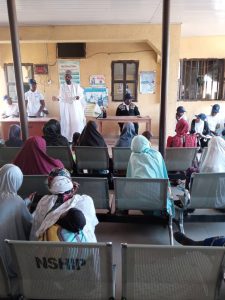Nigeria’s education system encompasses three different sectors: basic education (nine years), post basic/senior secondary education (three years), and tertiary education (four to six years, depending on the program of study). [i]
According to Nigeria’s latest National Policy on Education (2004), basic education covers nine years of formal (compulsory) schooling consisting of six years of elementary and three years of junior secondary education. Post-basic education includes three years of senior secondary education.
At the tertiary level, students are offered opportunity for undergraduate, graduate, and vocational and technical education. The government has majority control of university education. Tertiary education in Nigeria consists of Universities (Public and Private), Polytechnics, Monotechnic, and Colleges of education. The country has a total number of 153 universities registered by NUC among which federal and state government own 40 and 45 respectively while 68 universities are privately owned as at August, 2017. According to the Federal Ministry of Education, Nigeria has 43 approved federal universities, 47 approved state universities, 75 approved private universities, 28 approved federal polytechnics, 43 approved state polytechnics, 51 approved private polytechnics, 22 approved federal colleges, 47 approved state colleges and 26 approved private colleges.[i]
CHALLENGES FACED WITH NIGERIAN TERTIARY EDUCATION
- Underfunding: One of the most pressing problems for Nigeria’s higher education system remains the severe underfunding of its universities. The Federal government, which is responsible for sustaining public universities, has over the past decade not significantly increased the share of the government budget dedicated to education, despite exploding student numbers. Due to funding constraints, most of Nigeria’s public universities are in deteriorating condition. And while efforts at increasing capacity by building new universities have generally been positive for access in absolute terms, they have also created issues related to instructional quality. Nigeria’s institutions and lecture halls are severely overcrowded, student to teacher ratios have skyrocketed, and faculty shortages are chronic. Lab facilities, libraries, dorms, and other university facilities are often described as in being in a state of decay.
- Academic corruption and fraud: While corruption is a covert activity that is difficult to measure, Nigeria scores low on the global “Corruption Perceptions Index” published by the organization Transparency International. The 2016 report places Nigeria at 136th place among 176 countries.
Nigeria’s education sector is particularly vulnerable to corruption. As corruption scholar Ararat Osipian noted in 2013, “[limited access to education in Nigeria] has no doubt contributed to the use of bribes and personal connections to gain coveted places at universities, with some admissions officials reportedly working with agents to obtain bribes from students. Those who have no ability or willingness to resort to corruption face lost opportunities and unemployment.” In 2013, Transparency International reported that about 30 percent of Nigerians surveyed said they had paid a bribe in the education sector.[ii]
[i] Wikipedia
[ii] Education in Nigeria, the futuristic perspective by Tolani Olujuwon, October 2011.




